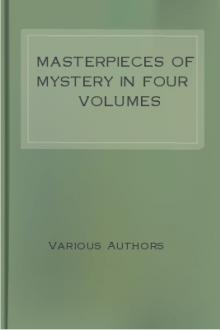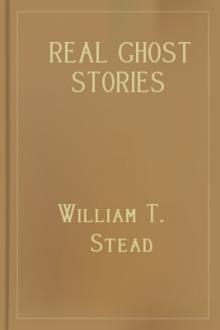Varney the Vampire; Or, the Feast of Blood by Prest and Rymer (ereader iphone .txt) 📗

- Author: Prest and Rymer
Book online «Varney the Vampire; Or, the Feast of Blood by Prest and Rymer (ereader iphone .txt) 📗». Author Prest and Rymer
The presence, however, of a body of dragoons, towards evening, effectually prevented any renewed attack upon the sacred precincts of the churchyard, and it was a strange and startling thing to see that country town under military surveillance, and sentinels posted at its principal buildings.
This measure smothered the vengeance of the crowd, and insured, for a time, the safety of Sir Francis Varney; for no considerable body of persons could assemble for the purpose of attacking his house again, without being followed; so such a step was not attempted.
It had so happened, however, that on that very day, the funeral of a young man was to have taken place, who had put up for a time at that same inn where Admiral Bell was first introduced to the reader. He had become seriously ill, and, after a few days of indisposition, which had puzzled the country practitioners, breathed his last.
He was to have been buried in the village churchyard on the very day of the riot and confusion incidental to the exhumation of the coffin of the butcher, and probably from that circumstance we may deduce the presence of the clergyman in canonicals at the period of the riot.
When it was found that so disorderly a mob possessed the churchyard, the idea of burying the stranger on that day was abandoned; but still all would have gone on quietly as regarded him, had it not been for the folly of one of the chamber-maids at the tavern.
This woman, with all the love of gossip incidental to her class, had, from the first, entered so fully into all the particulars concerning vampyres, that she fairly might be considered to be a little deranged on that head. Her imagination had been so worked upon, that she was in an unfit state to think of anything else, and if ever upon anybody a stern and revolting superstition was calculated to produce direful effects, it was upon this woman.
The town was tolerably quiet; the presence of the soldiery had frightened some and amused others, and no doubt the night would have passed off serenely, had she not suddenly rushed into the street, and, with bewildered accents and frantic gestures shouted,—
"A vampyre—a vampyre—a vampyre!"
These words soon collected a crowd around her, and then, with screaming accents, which would have been quite enough to convince any reflecting person that she had actually gone distracted upon that point, she cried,—
"Come into the house—come into the house! Look upon the dead body, that should have been in its grave; it's fresher now than it was the day on which it died, and there's a colour in its cheeks! A vampyre—a vampyre—a vampyre! Heaven save us from a vampyre!"
The strange, infuriated, maniacal manner in which these words were uttered, produced an astonishingly exciting effect among the mob. Several women screamed, and some few fainted. The torch was laid again to the altar of popular feeling, and the fierce flame of superstition burnt brightly and fiercely.
Some twenty or thirty persons, with shouts and exclamations, rushed into the inn, while the woman who had created the disturbance still continued to rave, tearing her hair, and shrieking at intervals, until she fell exhausted upon the pavement.
Soon, from a hundred throats, rose the dreadful cry of "A vampyre—a vampyre!" The alarm was given throughout the whole town; the bugles of the military sounded; there was a clash of arms—the shrieks of women; altogether, the premonitory symptoms of such a riot as was not likely to be quelled without bloodshed and considerable disaster.
It is truly astonishing the effect which one weak or vicious-minded person can produce upon a multitude.
Here was a woman whose opinion would have been accounted valueless upon the most common-place subject, and whose word would not have passed for twopence, setting a whole town by the ears by force of nothing but her sheer brutal ignorance.
It is a notorious physiological fact, that after four or five days, or even a week, the bodies of many persons assume an appearance of freshness, such as might have been looked for in vain immediately after death.
It is one of the most insidious processes of that decay which appears to regret with its
"————— offensive fingers, To mar the lines where beauty lingers."
But what did the chamber-maid know of physiology? Probably, she would have asked if it was anything good to eat; and so, of course, having her head full of vampyres, she must needs produce so lamentable a scene of confusion, the results of which we almost sicken at detailing.
CHAPTER XLVIII. THE STAKE AND THE DEAD BODY.The mob seemed from the first to have an impression that, as regarded the military force, no very serious results would arise from that quarter, for it was not to be supposed that, on an occasion which could not possibly arouse any ill blood on the part of the soldiery, or on which they could have the least personal feeling, they would like to get a bad name, which would stick to them for years to come.
It was no political riot, on which men might be supposed, in consequence of differing in opinion, to have their passions inflamed; so that, although the call of the civil authorities for military aid had been acceded to, yet it was hoped, and, indeed, almost understood by the officers, that their operations would lie confined more to a demonstration of power, than anything else.
Besides, some of the men had got talking to the townspeople, and had heard all about the vampyre story, and not being of the most refined or educated class themselves, they felt rather interested than otherwise in the affair.
Under these circumstances, then, we are inclined to think, that the disorderly mob of that inn had not so wholesome a fear as it was most certainly intended they should have of the redcoats. Then, again, they were not attacking the churchyard, which, in the first case, was the main point in dispute, and about which the authorities had felt so very sore, inasmuch as they felt that, if once the common people found out that the sanctity of such places could be outraged with impunity, they would lose their reverence for the church; that is to say, for the host of persons who live well and get fat in this country by the trade of religion.
Consequently, this churchyard was the main point of defence, and it was zealously looked to when it need not have been done so, while the public-house where there really reigned mischief was half unguarded.
There are always in all communities, whether large or small, a number of persons who really have, or fancy they have, something to gain by disturbance. These people, of course, care not for what pretext the public peace is violated; so long as there is a row, and something like an excuse for running into other people's houses, they are satisfied.
To get into a public-house under such circumstances is an unexpected treat; and thus, when the mob rushed into the inn with such symptoms of fury and excitement, there went with the leaders of the disturbance a number of persons who never thought of getting further than the bar, where they attacked the spirit-taps with an alacrity which showed how great was their love for ardent compounds.
Leaving these persons behind, however, we will follow those who, with a real superstition, and a furious interest in the affair of the vampyre, made their way towards the upper chamber, determining to satisfy themselves if there were truth in the statement so alarmingly made by the woman who had created such an emotion.
It is astonishing what people will do in crowds, in comparison with the acts that they would be able to commit individually. There is usually a calmness, a sanctity, a sublimity about death, which irresistibly induces a respect for its presence, alike from the educated or from the illiterate; and let the object of the fell-destroyer's presence be whom it may, the very consciousness that death has claimed it for its own, invests it with a halo of respect, that, in life, the individual could never aspire to probably.
Let us precede these furious rioters for a few moments, and look upon the chamber





Comments (0)